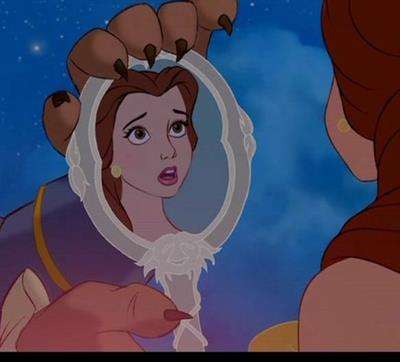Who is the fairest of them all? Research reveals we hold a rose-tinted view of our own morality

Recent research published in the journal Social Psychological and Personality Science has shown that when evaluating their own morality, people will almost always judge themselves as morally superior to the average person.
This better-than-average phenomenon reflects peoples' overly positive evaluation of themselves - a "positive illusion" - which may have consequences for decision making and conflict.
If everyone is special, no one is
The researchers from Royal Holloway, University of London's Department of Psychology asked participants to judge a series of human qualities as to how desirable those traits were, how much they themselves possessed those traits, and how much they thought the average person possessed the traits. These qualities included descriptors such as hard-working, sociable, honest, trustworthy and prejudiced.
Nearly all participants rated themselves highly on the moral traits, but rated the average person as distinctly less so. This discrepancy between the true average (what everyone rated themselves as) and the perceived average, (what everyone rated the average person as), led the researchers to conclude that, "nearly all participants irrationally inflated their moral qualities".
Previous research in the field has argued that such 'positive illusions' promote individual wellbeing. However, this study revealed that even those individuals with relatively low self-esteem identified themselves as morally superior to the average person.
Paths paved with good intentions
Ben Tappin, lead author on the paper and postgraduate within Royal Holloway's Department of Psychology, explained:
"Our research indicates that most people believe they are just, virtuous and moral – more so than the average person, and, in particular, that this phenomenon may be irrational. Recognising we build a 'positive illusion' of our own goodness relative to the average person is important, especially when we are living in times of political fracturing and moral conflict. If we keep telling ourselves our beliefs, actions and traits are better than a majority of others' you can see how it becomes easy to lose sight of the validity of opposing views, and our own fallibility."
Dr Ryan McKay, Principal Investigator at Royal Holloway's Morality and Beliefs Lab commented:
"While this study doesn't look at why people think this way, or the consequences of this phenomenon, it raises important questions about how these judgments affect our lives – from personal relationships and intergroup relations, to work and prosocial behaviour. Ongoing research in our lab is looking into these issues, including how an illusion of moral superiority manifests itself in groups as well as individuals."
The results of this research formed part of the debate on this week's BBC Radio 4 Moral Maze, which explored the self-deception of morality and the 'self-deception that helps maintain our self-esteem'.
More information: B. M. Tappin et al. The Illusion of Moral Superiority, Social Psychological and Personality Science (2016). DOI: 10.1177/1948550616673878



















